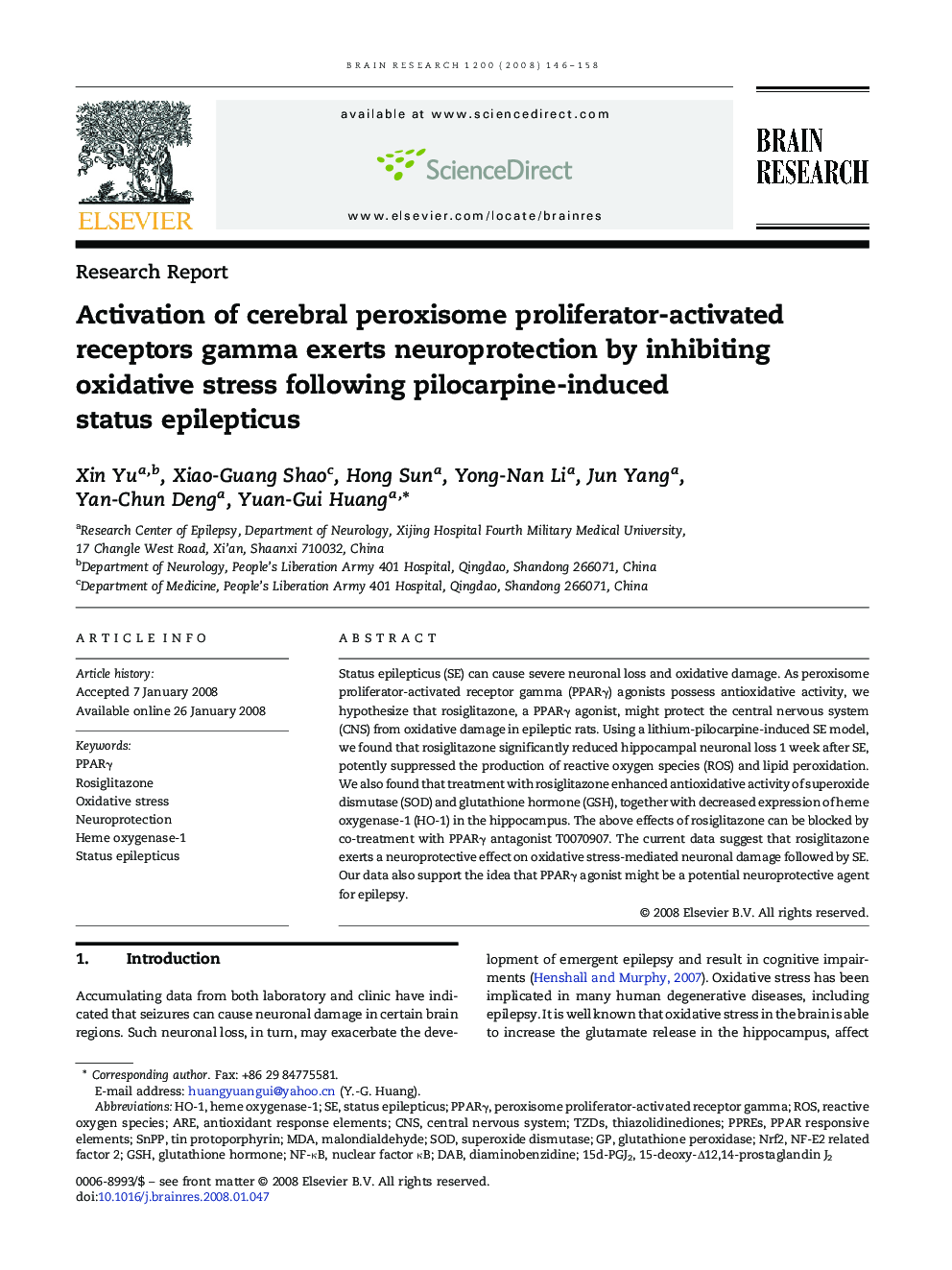| Article ID | Journal | Published Year | Pages | File Type |
|---|---|---|---|---|
| 4329882 | Brain Research | 2008 | 13 Pages |
Abstract
Status epilepticus (SE) can cause severe neuronal loss and oxidative damage. As peroxisome proliferator-activated receptor gamma (PPARγ) agonists possess antioxidative activity, we hypothesize that rosiglitazone, a PPARγ agonist, might protect the central nervous system (CNS) from oxidative damage in epileptic rats. Using a lithium-pilocarpine-induced SE model, we found that rosiglitazone significantly reduced hippocampal neuronal loss 1 week after SE, potently suppressed the production of reactive oxygen species (ROS) and lipid peroxidation. We also found that treatment with rosiglitazone enhanced antioxidative activity of superoxide dismutase (SOD) and glutathione hormone (GSH), together with decreased expression of heme oxygenase-1 (HO-1) in the hippocampus. The above effects of rosiglitazone can be blocked by co-treatment with PPARγ antagonist T0070907. The current data suggest that rosiglitazone exerts a neuroprotective effect on oxidative stress-mediated neuronal damage followed by SE. Our data also support the idea that PPARγ agonist might be a potential neuroprotective agent for epilepsy.
Keywords
NF-κBMDAPPREs15d-PGJ2Heme oxygenase-1PPARγHO-1GSHNrf2DAB15-deoxy-Δ12,14-Prostaglandin J2ROSSnPPTZDsstatus epilepticusOxidative stressthiazolidinedionesCNSdiaminobenzidinerosiglitazoneSODSuperoxide dismutasecentral nervous systemNF-E2 related factor 2antioxidant response elementsnuclear factor κBmalondialdehydeNeuroprotectionARETin protoporphyrinPeroxisome proliferator-activated receptor gammaglutathione peroxidaseReactive oxygen species
Related Topics
Life Sciences
Neuroscience
Neuroscience (General)
Authors
Xin Yu, Xiao-Guang Shao, Hong Sun, Yong-Nan Li, Jun Yang, Yan-Chun Deng, Yuan-Gui Huang,
